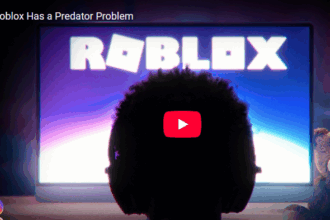Sep 9, 2025 Meta whistleblowers testify before the Senate Judiciary Committee with claims about child endangerment on Meta platforms.
Parents Beware!
Recent whistleblower testimonies have unveiled a disturbing pattern of behavior from Meta, the parent company of Facebook and Instagram, revealing that its products, including the metaverse, are not safe for children. According to these brave individuals, Meta is not only aware of the dangers but actively conceals research and manipulates data to prioritize profits over the well-being of young users.
The Metaverse: A “Pedophile Kingdom”
The metaverse, Meta’s virtual reality world, has been described as the “wild west for criminals who prey on our children.” The immersive nature of this technology blurs the line between virtual and physical reality for kids. When a child’s avatar is virtually harassed or assaulted, they experience that trauma as if it were happening in the real world. This type of abuse is not a hypothetical risk; it’s happening every day, according to internal documents.
One whistleblower, a former researcher at Meta, stated that an employee’s internal message board post from 2017 warned, “We have a child problem, and it’s probably time to talk about it.” However, instead of addressing these concerns, Meta executives chose to suppress and even destroy data that could have exposed the harms their products inflict on children.
Internal documents show that Meta’s legal teams allegedly instructed researchers to avoid asking questions that might lead to negative findings about their products’ impact on teens. When the research couldn’t be buried, the evidence was simply deleted. This suppression of research and the manipulation of data were not isolated incidents but a systemic effort to protect the company’s image and financial interests.
Profits over Safety: A Calculated Neglect
Meta’s business model is built on maximizing user engagement and increasing time spent on its platforms. This pursuit of profit comes at a tremendous cost to children’s safety. For instance, reports indicate that Meta’s own internal guidelines allowed AI chatbots to engage in “sensual conversations” with children, a shocking example of how the company’s priorities are fundamentally misaligned with child safety.
Despite being aware that a high percentage of users on its virtual reality platforms are underage, Meta has allegedly turned a blind eye. The company has a code name for this issue: “Project Salsa,” a nod to its “spicy” nature. This is because acknowledging the presence of underage users would require Meta to remove them, which would negatively impact their user engagement metrics and, by extension, their profits. This willful ignorance is a direct violation of child privacy laws like the Children’s Online Privacy Protection Act (COPPA).
The contrast is clear: while other industries face accountability for defective products (e.g., an exploding appliance or a faulty tire), tech companies have been largely immune. This lack of accountability incentivizes them to prioritize revenue over safety, knowing they are unlikely to face significant legal consequences.
Tips for Parents to Keep Their Kids Safe
Given these alarming revelations, it is more important than ever for parents to take an active role in protecting their children online. Here are some actionable tips:
1. Understand the Technology
Before allowing your child to use a new app, game, or device, take the time to learn how it works. This includes understanding what personal data is being collected and how the company’s algorithms function. Don’t rely on the company’s own marketing; look for independent reviews and safety reports.
2. Set Clear Boundaries and Rules
Work with your children to establish clear rules for online behavior and technology use. This includes setting limits on screen time, defining appropriate content, and explaining the importance of privacy. Make sure your child understands why these rules exist.
3. Be Present in Their Digital Lives
Encourage an open dialogue about their online experiences. Ask them what they are watching, who they are talking to, and how they feel when they use certain apps. If possible, explore virtual worlds together to get a firsthand look at the environment and the interactions taking place.
4. Use Parental Controls and Privacy Settings
Most devices and platforms offer parental controls. Use them! Configure privacy settings to the highest level, limit who can contact your child, and disable location tracking. Regularly check these settings, as platforms often change their defaults.
5. Advocate for Change
The “Kids Online Safety Act” and other bipartisan efforts are underway to hold tech companies accountable. Stay informed about these legislative efforts and contact your elected officials to support them. As a parent, your voice has the power to influence meaningful change.












